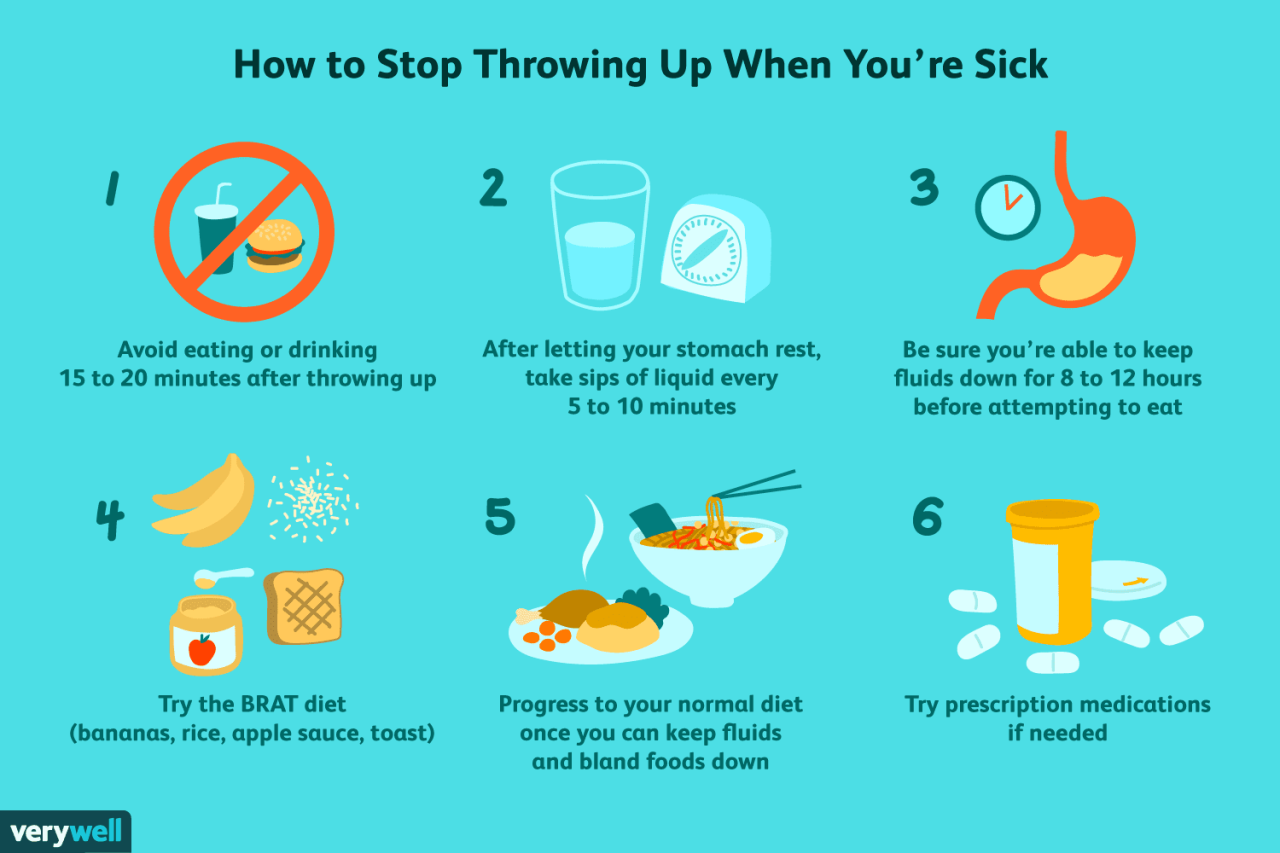How to throw up – Yo, check it, we’re gonna dive into the gnarly world of puking. Whether you’re feeling queasy from a bad burrito or just need to clear out your system, this guide’s got you covered. Let’s get this party started, y’all!
From natural remedies to medical interventions, we’ll break down all the ways to make yourself hurl. So, if you’re ready to embrace the technicolor yawn, keep reading.
Medical Causes of Vomiting: How To Throw Up

Yo, check it, vomiting ain’t just a random thing that happens. It’s usually a sign that something’s up with your bod. There’s a whole bunch of medical reasons why you might be chuckin’ up, so let’s break ’em down.
Yo, if you’re feeling like you’re gonna puke, don’t panic. Just follow these steps: drink some water, try to relax, and if that doesn’t work, check out atekno for some helpful tips. Once you’re feeling better, come back here and let us know how it went!
Food Poisoning
- This happens when you eat food that’s got nasty bacteria or toxins in it. You’ll feel like crap, with symptoms like nausea, vomiting, diarrhea, and fever.
- Treatment: Stay hydrated and rest. In some cases, you might need meds to kill the bacteria or stop the vomiting.
Infections, How to throw up
- Vomiting can be a symptom of infections like the flu, stomach bugs, or even meningitis. You’ll likely have other symptoms too, like fever, chills, and muscle aches.
- Treatment: Depends on the infection. You might need antibiotics, antiviral meds, or just rest and fluids.
Motion Sickness
- This happens when your brain gets confused by the movement of your body. You might feel dizzy, nauseous, and vomit.
- Treatment: Over-the-counter meds like Dramamine can help prevent motion sickness. You can also try sitting still, looking straight ahead, and getting fresh air.
Natural Remedies for Vomiting

Feeling nauseous and vomiting can be an unpleasant experience, especially when it persists. Fortunately, there are several natural remedies that have been traditionally used to alleviate these symptoms.
Ginger Tea
Ginger is a well-known natural remedy for nausea and vomiting. It contains compounds called gingerols, which have anti-inflammatory and antiemetic (anti-vomiting) properties. Drinking ginger tea can help soothe the stomach and reduce nausea.
Peppermint
Peppermint is another effective remedy for vomiting. It contains menthol, which has a cooling and calming effect on the stomach. Peppermint tea or capsules can help relieve nausea and vomiting.
Yo, check it, if you’re feelin’ all gross and need to hurl, don’t be shy. Just head to Hello world! for the lowdown on how to puke properly. Trust me, it’s a lifesaver when you’re about to blow chunks. Peace out!
Chamomile
Chamomile is a herb that has been used for centuries to treat various ailments, including nausea and vomiting. It has anti-inflammatory and sedative properties that can help soothe the stomach and promote relaxation.
It’s important to note that while these natural remedies may provide some relief, they should not be used as a substitute for medical treatment if vomiting is severe or persistent. It’s always best to consult with a healthcare professional to determine the underlying cause of vomiting and receive appropriate treatment.
Medical Interventions for Vomiting

When vomiting persists or becomes severe, medical interventions may be necessary to control the symptoms and prevent dehydration and other complications. These interventions include medications and treatments prescribed by healthcare professionals.
Medications
Antiemetics are medications that work by blocking the signals in the brain that trigger nausea and vomiting. Common antiemetics include:
- Ondansetron (Zofran)
- Prochlorperazine (Compazine)
- Metoclopramide (Reglan)
These medications are typically administered orally, intravenously, or through a suppository. They can be effective in reducing vomiting and preventing dehydration.
IV Fluids
Intravenous (IV) fluids are administered directly into a vein to replace lost fluids and electrolytes. This is especially important in cases of severe vomiting where dehydration can become a significant concern. IV fluids can also help to maintain blood pressure and prevent electrolyte imbalances.
Prevention and Management of Vomiting

Yo, puking sucks, right? Let’s talk about how to avoid it and deal with it when it happens.
Prevention
* Avoid trigger foods: Certain foods can make you want to hurl, like spicy or fatty stuff. Stay away from them if you can.
* Stay hydrated: Drink plenty of fluids to keep your body from getting dehydrated, which can make vomiting worse.
* Manage stress: Stress can trigger vomiting, so find ways to chill out like exercise or meditation.
Management
* Stay hydrated: Keep sipping on clear liquids like water or ginger ale to prevent dehydration.
* Rest: Don’t push yourself too hard. Get some rest to give your body time to recover.
* Diet modifications: Stick to bland foods like crackers, rice, or bananas after vomiting. Avoid spicy, fatty, or dairy products.
Last Recap

There you have it, folks! The ultimate guide to throwing up. Remember, it’s not always a bad thing to let it all out. Sometimes, it’s just what the doctor ordered. So, next time you’re feeling like a walking stomach bug, don’t be afraid to embrace the power of puke. Just be sure to clean up the aftermath, ’cause nobody likes a messy barfer.
General Inquiries
What’s the best way to prevent vomiting?
Stay hydrated, avoid greasy foods, and manage stress levels.
What are some natural remedies for vomiting?
Ginger tea, peppermint, and chamomile can help alleviate nausea.
What are the most common medical causes of vomiting?
Food poisoning, infections, and motion sickness are all common triggers.
